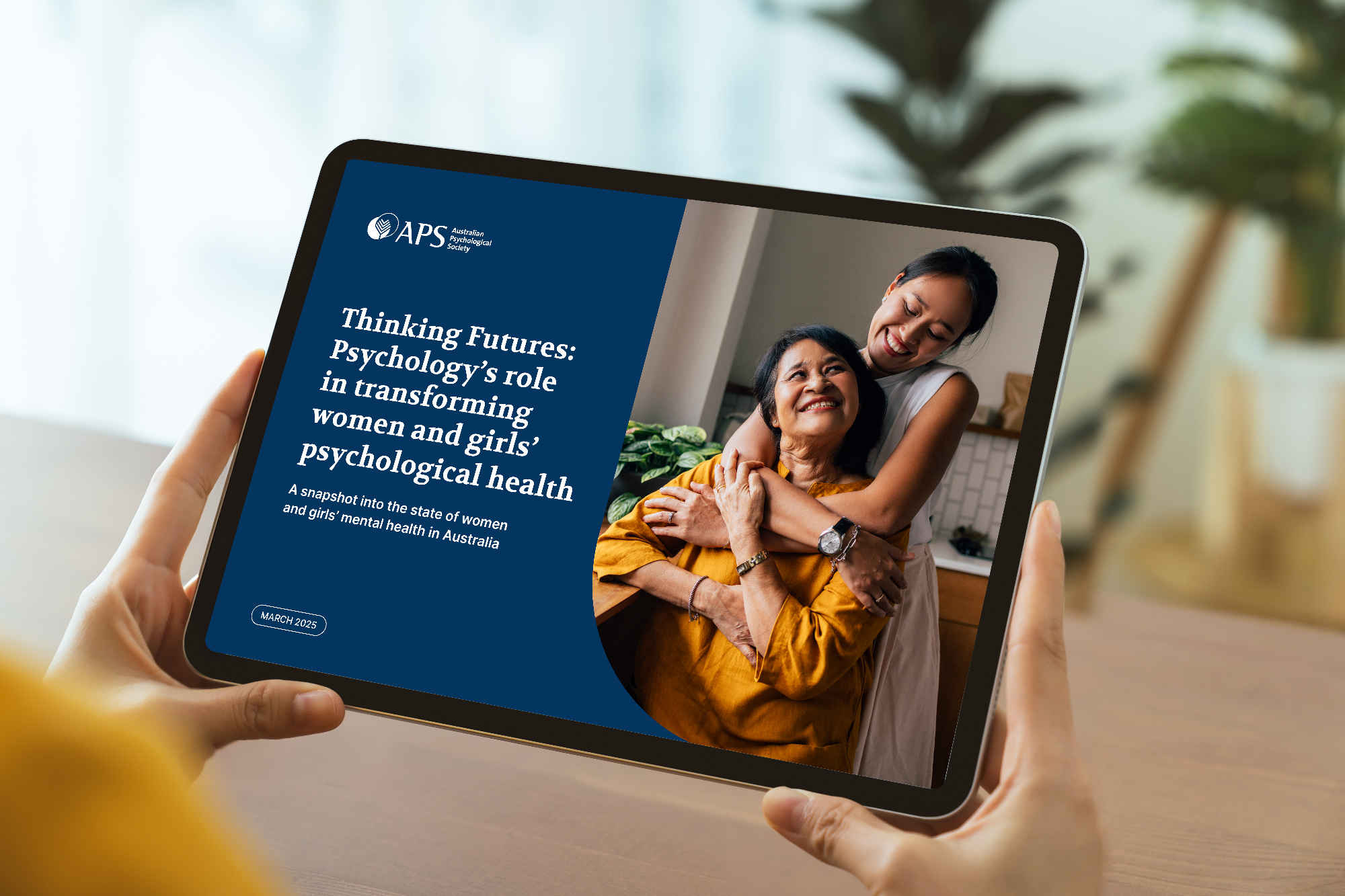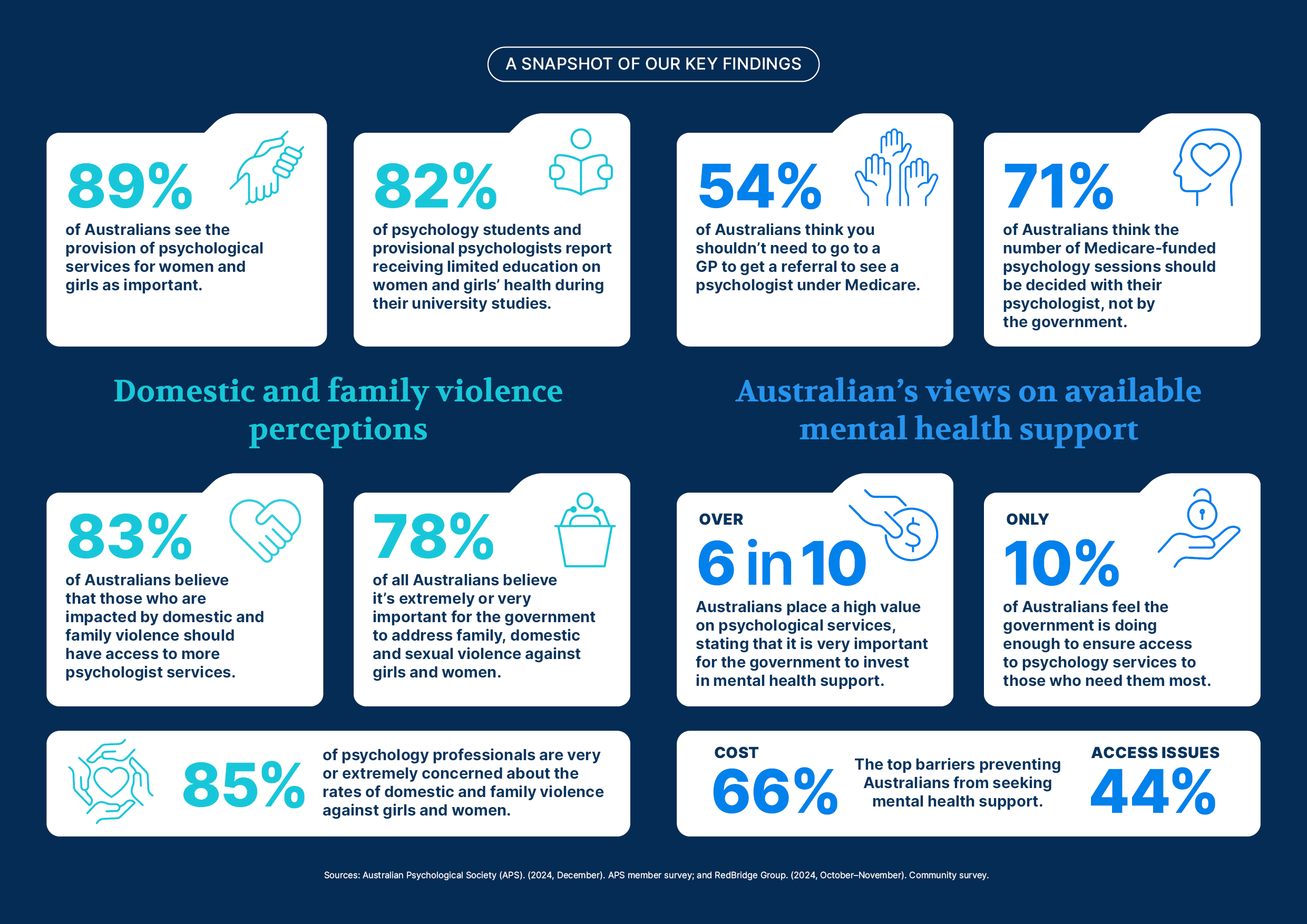 The 2025 Thinking Futures report examines the psychological health of Australian women and girls, with an emphasis on the impacts of domestic and family violence.
The 2025 Thinking Futures report examines the psychological health of Australian women and girls, with an emphasis on the impacts of domestic and family violence.
Women and girls' mental health and wellbeing
Women and girls in Australia face unique and compounding health challenges across their lifespan.
Nearly 90 per cent of community members surveyed say the provision of psychology services for women and girls is important, yet only 10 per cent believe the government is currently doing enough to ensure access to psychology services to those who need them most, such as women and girls.
"Too many women and girls in our country are left without the psychological care they need, whether due to financial barriers, limited availability of services, a lack of training provided to healthcare professionals, or systemic inefficiencies," says Dr Sara Quinn, President, APS. "We need to do better by them."
Women and girls' experiences of family and domestic violence
Almost 80 per cent of surveyed community members feel it is extremely or very important for the government to address domestic, family and sexual violence (DFSV) perpetrated against women and girls, and 85 per cent of surveyed psychologists, provisional psychologists and academics reported feeling concerned about the current rates of DFSV in Australia.
"This report should be treated as a catalyst for action," says Dr Zena Burgess, CEO, APS.
"Together, we can create a future where mental health care is a right, not a privilege, and where psychology has a central role in transforming women and girls' health in Australia."

What is the Thinking Futures report?
Now in its second year, the Thinking Futures report offers an annual snapshot of psychology’s influence in Australia, each year exploring a key theme.
Drawing on public and academic sources, as well as insights from psychologists, APS members, and the wider community, this year's report incorporates survey findings, including research conducted in collaboration with the APS’s external research partner, RedBridge Group.
While it highlights critical issues affecting women and girls in Australia, this report is not a systematic review or academic study. Instead, it provides a broad analysis, offering key recommendations that align with the APS’s advocacy for targeted government action.